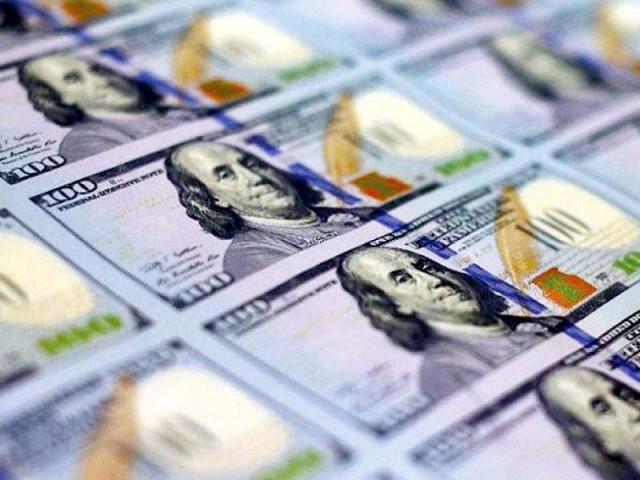Despite promises, Pakistan unlikely to get heavy funding by June
Country may have to rely on commercial loans, Eurobonds to meet its needs

The government was keen to acquire low-cost foreign loans and for this purpose efforts would be made to improve the flow of funds from the traditional multilateral partners, said Dr Miftah Ismail. PHOTO: AFP
Adviser to Prime Minister on Finance Dr Miftah Ismail told The Express Tribune on Saturday that the option to float Eurobond “still remains on the table”, although the Ministry of Finance withdrew its summary for the issue from the federal cabinet this week.
Ismail held a couple of internal meetings in recent days to review the inflow of foreign financing over the next four months. However, the results were not surprising.
The Economic Affairs Division’s projections did not show any abnormal hike in foreign inflows from the traditional lenders, said sources in the finance ministry.
‘High debt servicing damaging country’s image’
The anticipated minimum financing gap was $6 billion for the next four months and the finance ministry had already taken more commercial loans last month to cushion the central bank’s declining foreign currency reserves, said the sources.
Inflows from the two largest lenders - the Asian Development Bank (ADB) and the World Bank - were expected to remain below the budgetary projections as both the lenders would not like to give any budgetary support due to deterioration in major economic indicators, the sources said. Project lending from them will depend on progress on the schemes.
The external situation became precarious after imports in January peaked at $5.6 billion - the highest level in 70 years. The ballooning trade bill suggests measures like heavy regulatory duty and non-tariff barriers to curb imports had failed to work as warned by the experts. The 5% rupee depreciation in December 2017 also could not do wonders and exports rose only modestly.
The State Bank of Pakistan’s gross foreign currency reserves are already down to $13.1 billion, lower than what Pakistan had before floating bonds in November 2017.
The Economic Affairs Division had estimated receiving around $550 million more from the ADB till June this year, which would take its total disbursements to slightly over $1 billion, said the sources. However, lending from the World Bank will not touch even $1 billion this year.
In the first half of the current fiscal year, Pakistan received less than $220 million from the World Bank against annual estimate of $1.04 billion.
Project lending from the Islamic Development Bank (IDB) and China will also be within projections. So far, China has given $444 million and the IDB have provided $750 million. But Chinese commercial loans are still coming.
Pakistan had firm commitments of over $26 billion from international creditors and donors that would remain undisbursed by the end of current fiscal year, said the sources.
The amount includes roughly $10 billion from the multilateral lenders, $12 billion in loan commitments by individual countries and around $4 billion in grants.
Future options
The government was keen to acquire low-cost foreign loans and for this purpose efforts would be made to improve the flow of funds from the traditional multilateral partners, said Ismail while talking to The Express Tribune.
He said external financing needs were significant at this point in time, which would necessitate tapping other options including the sovereign bonds.
The government was set to float the Eurobond this week to raise $1 billion, but suddenly withdrew its summary tabled for approval of the federal cabinet.
“The option to float the Eurobond is still on the table and the finance ministry withdrew its summary due to the likely impact of higher US Treasury rates on Pakistan’s cost of borrowing,” said Ismail.
In November, Pakistan raised $2.5 billion from global capital markets through a five-year Sukuk and 10-year Eurobond. It borrowed $1 billion through the Sukuk at 5.625% and $1.5 billion through 10-year bonds at 6.875 %, which was 455 basis points above the 10-year US Treasury rate.
Pakistan borrows another $500m from China
In case the government had floated the Eurobond this week, its cost would have jumped to a minimum 7.10%.
Sources said the immediate available option was to tap short-term foreign commercial loans in line with the government’s practice over the past four and a half years.
Published in The Express Tribune, February 11th, 2018.
Like Business on Facebook, follow @TribuneBiz on Twitter to stay informed and join in the conversation.


















COMMENTS
Comments are moderated and generally will be posted if they are on-topic and not abusive.
For more information, please see our Comments FAQ